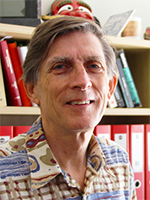Removing Non-Target Metals

Leader: Prof Peter Hayes, The University of Queensland
UQ has research strength and expertise in the physical and chemical processing of minerals – we’re looking to develop integrated solutions to improve processing for industry.Prof Peter Hayes
The need for the research
To provide materials that can be exported and traded to the world market, new cost-effective and reliable process technologies are needed to separate non-target metals from iron oxide copper gold uranium (IOCG-U) ores. We know that these non-target metals are intimately associated with the valuable copper in ways that are not typical of other copper ores. This poses a challenge that will require the design of new potential process pathways – the aim of this research will be to identify these options and provide scientific support for future process developments.
The copper present in the earth is present as naturally-occurring chemical compounds, known as minerals. These valuable minerals are dispersed amongst the host rock. Over geological time the mineral deposits in the earth undergo substantial changes forming complex mixtures of minerals and elements.
Physical separations
After mining the ore, the first task is to physically separate the unwanted host rock. This sounds straightforward but requires a lot of energy to first crush and grind the rocks to fine particles and then apply technically-advanced processes to physically separate the particles into the minerals we want to keep and those that are not valuable. Dr Yongjun Peng will be examining these physical separation processes to find the best way of separating unwanted from valuable elements.
Chemical separations
When non-target elements are finely dispersed in the mineral assemblage, or are chemically bound to these copper-bearing minerals, some form of chemical separation is necessary. These treatments typically involve aqueous solution (hydrometallurgy) and/or high temperature (pyrometallurgy) processing. Research on these process options will be undertaken at UQ by Dr James Vaughan and Will Hawker (hydrometallurgy), and by Prof Evgueni Jak and Prof Peter Hayes (pyrometallurgy).
Why separation methods matter
Separation of non-target from target metals is difficult and all three types of separation processes may be needed - an integrated approach - to develop new process routes that can be used on an industrial scale and are economically viable and environmentally acceptable.
Interested in partnering with the Hub? Contact Prof Peter Hayes to get involved or register your interest to receive Hub research updates.
Our partners









